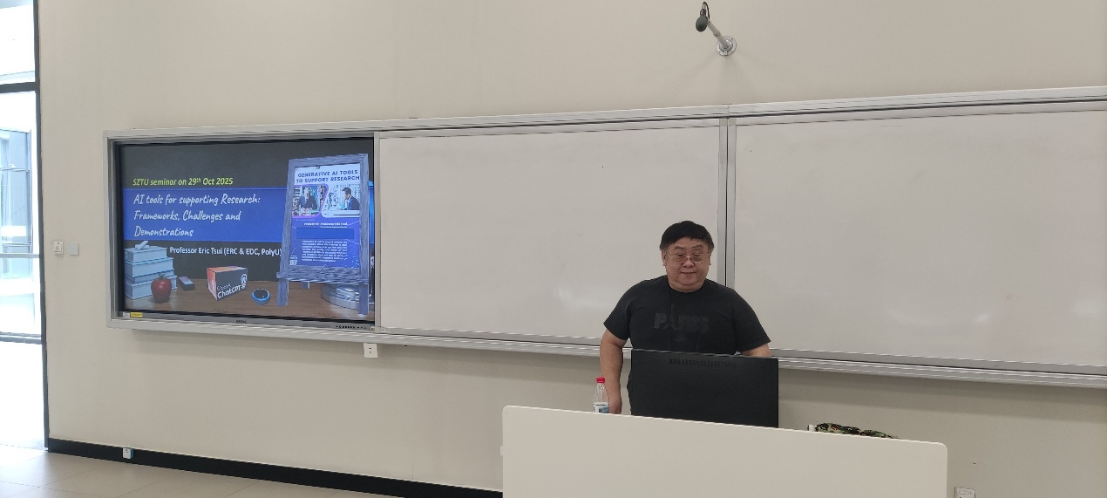On October 29,2025, Associate Professor Liu Gang from Business School hosted aguestlecture titled “AI tools for supporting Research: Frameworks, Challenges and Demonstrations” in room C5-542. The speaker, Prof. Eric Tsui from The Hong Kong Polytechnic University, brought deep theoretical insight and front-line teaching experience, leaving the audience with plenty to take away.
Focusing on “How generative AI is reshaping higher education and research,” Prof. Tsui explored AI’s innovative applications in course design, research assistance and learning assessment, and addressed hot questions such as “Will AI replace human researchers?” He stressed that AI is not a universal plug-in but a catalyst shifting education from “experience-driven” to “data-driven,” enabling teachers to move from “knowledge transmitters” to “interpreters of learning data and value guides.”
In the research-empowerment section, he demonstrated tools like Elicit and Scite for rapid literature reviews, hypothesis generation and citation analysis, noting that “AI can compress a week of reading into a one-hour conversation.” Researchers must nevertheless maintain critical thinking, cross-validate data and viewpoints, and avoid “algorithmic hallucinations.” Using cases of AI-assisted topic selection, data visualization and format checking, he advised the audience to “let AI do the addition and critical thinking do the subtraction,” leaving repetitive tasks to machines so that human energy can go into original thought.
Near the end, Prof. Tsui reminded everyone that AI tools evolve rapidly: today’s “silver bullet” may be obsolete tomorrow. The key for students and faculty is to develop “AI literacy”—knowing how to ask questions, how to verify and how to act ethically—so as to stay competitive in the age of intelligence.
The lecture also served as a hands-on exchange platform for “AI + Education.” Prof. Tsui provided a ready-to-use tool list and operation guide, outlined the direction for teaching and research transformation in the AI era, and sparked new ideas for renovating classrooms, improving research efficiency and building a smarter educational ecosystem.

Picture/Text:Guan Yuyan
Review: Liu Gang